Credits
83-97
Positively impact communities as a Christ-centered occupational therapist who empowers others to reach their highest potential through leadership, best practice, advocacy, and innovation.
The OT program at Concordia University Wisconsin prepares students to obtain employment in a variety of settings. The didactic coursework, community-based experiences, and clinical education come together to prepare students as entry-level occupational therapists. Students participate in clinical experiences which include individual and group treatment sessions in pediatric and adult populations. At CUW, we prepare uncommon OTs who are ready to serve their communities and clients.
83-97
We are committed to engaging your mind and spirit for service to Christ in the church and the world.
Our team is available to help you as you consider the next step in your education.
Our team is standing by to assist you with additional program details, financial aid options, and admissions questions.
Loading...
The mission of Concordia University’s Occupational Therapy Doctorate program is to positively impact communities by developing Christ-centered occupational therapists who empower others to reach their highest potential through leadership, best practice, advocacy, and innovation. We emphasize the importance of serving all clients with the best care possible. You’ll develop the skills necessary to enable people (persons, groups, or populations) to do their daily occupations to improve or enabling participation (OTPF-4, 2020). By combining classroom, laboratory, and supervised clinic-based instruction, our courses train you for a wide range of occupational therapy settings. An emphasis on advocacy, leadership and research will prepare you for a role as a change maker in the system you work in.
Our occupational therapy curriculum offers you exposure to many real-world scenarios that will test your knowledge. You’ll have multiple opportunities for client contact, ranging from children to older adults, school systems to acute care and community wellness programs. Some of these experiences are clinical fieldwork placements, while others are client evaluation and consultation in a classroom or community setting. In your first year, you’ll begin working with clients in the community to put theory into practice.
This is a full time graduate professional program taught in a blended format. Students interact with their classmates and professors online before and after in person classes, which focus on active learning and/or lab activities. Students enroll in one of three tracks, as determined by their educational background:
Students should expect to pay the tuition and fees as noted on the Tuition & Fees tab.
Students enter the entry-level Occupational Therapy Doctorate (OTD) degree through the MOT program. Throughout the first semester of the MOT program, students explore the OTD option. During the second semester, students choose to continue in the MOT program or apply to the OTD program. Students who apply to the OTD program will be evaluated by the OTD admissions committee to determine eligibility and appropriate fit for the OTD coursework, which requires higher thinking, commitment, and additional curricular requirements.
The entry-level occupational therapy doctoral degree (OTD) program is accredited by the Accreditation Council for Occupational Therapy Education (ACOTE) of the American Occupational Therapy Association (AOTA), located at 7501 Wisconsin Avenue, Suite 510E Bethesda, MD 20814. ACOTE’s telephone number c/o AOTA is (301) 652-6611 and its web address is www.acoteonline.org.
Students must complete 24 weeks of Level II fieldwork as well as an individual 14-week capstone experience within 24 months following the completion of the didactic portion of the program. The doctoral capstone experience must be started after completion of all coursework and Level II fieldwork as well as completion of preparatory activities defined in 2018 ACOTE OTD Standard D.1.3.
Program data specific to the OTD program at Concordia University Wisconsin on the National Board for Certification in Occupational Therapy (NBCOT) Exam can be found here.
Students interested in the entry-level Occupational Therapy Doctorate (OTD) must first apply to the Master of Occupational Therapy (MOT) Program and follow all instructions found here.
During the second semester of the MOT program, interested students may apply for the OTD program, through an internal process, if they meet the following requirements:
Students must complete the following requirements while applying to the OTD program:
All applicant files will be reviewed by the OT Admissions Committee and the OTD Program Director. If accepted to the OTD program, students will be notified and should anticipate completing additional doctoral-level assignments and coursework.
Assistant Professor
Office: Heidelberg Hall 205
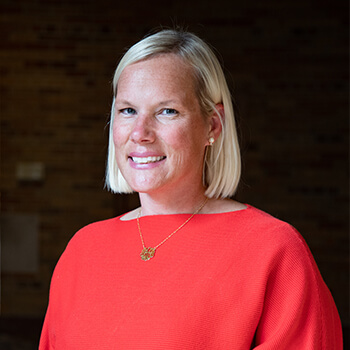
Coordinator - OT Doctoral Capstones, Assistant Professor
Office: Heidelberg Hall 205
Phone: (262) 243-2164
Dr. Stephanie Bonk is the Doctoral Capstone Coordinator. She works with the OTD students with completion of their capstone planning and experiences. Her professional experience in occupational therapy is in skilled nursing, outpatient, home health, and management. Her research interests include student success, caregiver support, and geriatrics.
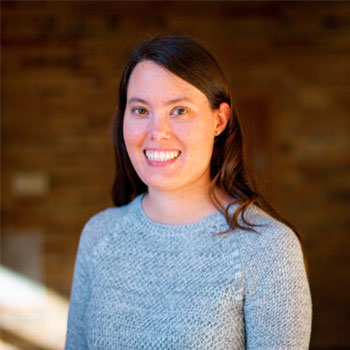
Professor
Office: Heidelberg Hall HE222
Phone: (262) 243-4234
Dr. Borst is an Occupational Therapist and a Certified Hand Therapist, with a special interest in the interaction between Christian faith, education, and vocation. He teaches Occupational Kinesiology and Orthopedic Rehabilitation. He is interested in applying research findings to the clinic and classroom, and has taught evidence-based differential diagnosis, physical agents, and upper extremity rehabilitation to national and international audiences. Dr. Borst is certified by the National Board for Certification in Occupational Therapy as an Occupational Therapist-Registered (OTR), is licensed by the State of Wisconsin to practice as an Occupational Therapist, and is certified by the Hand Therapy Certification Commission as a Certified Hand Therapist (CHT).

Assistant Professor
Office: Heidelberg Hall 221
Phone: (262) 243-4261
Dr. Anne Martin has over 15 years experience in occupational therapy. Clinical practice includes working in acute care, memory care, outpatient, and assisted living facility. She currently teaches Clinical Reasoning - Gerontology and in the Community Clinic.<br><br>Dr. Martin graduated from Creighton University with a doctorate of occupational therapy in December 2021. Additionally, Dr. Martin has received her Master of Occupational Therapy and Bachelor of Arts - Psychology from St. Ambrose University in 2009 and 2008, respectively. She earned the Board Certification in Gerontology from American Occupational Therapy Association.
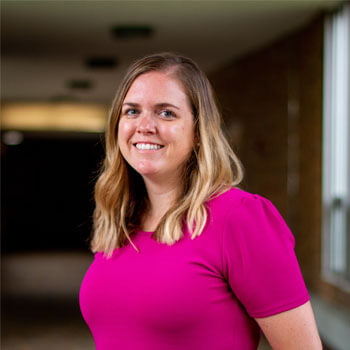
Associate Professor
Office: Heidelberg Hall H222
Phone: (262) 243-2041
Dr. Mike McKinnis teaches adult rehab courses in the CUW OT Department. His research interests are Fall Prevention with community-dwelling adults, clinical simulation, and Interprofessional Education. He has presented both locally and nationally on fall prevention.
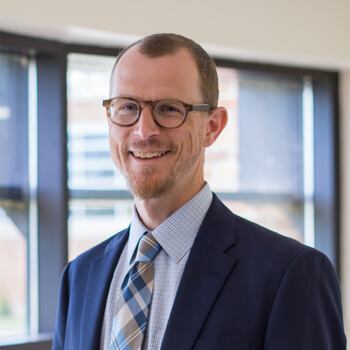
Assistant Professor
Office: Heidelberg Hall 215
Phone: (262) 243-4363
Dr. Oduro earned her doctorate degree in occupational therapy from Washington University in St. Louis in 2010. As a student, she conducted research exploring activities, roles and quality of life in adolescents with anorexia nervosa, and exploring variables contributing to activity limitations in adults with upper extremity nerve disorders. Dr. Oduro began her career as an occupational therapist practicing in inpatient rehabilitation in 2011. She has worked with clients with spinal cord injuries, amputations, and brain injuries in St. Louis, Boston and Cleveland including the Rehabilitation Institute of St. Louis and Spaulding Rehabilitation Hospital. She transitioned into academia in 2020 adjunct teaching in the occupational therapy program at Cleveland State University, and an occupational therapy assistant program at Bryant and Stratton College.
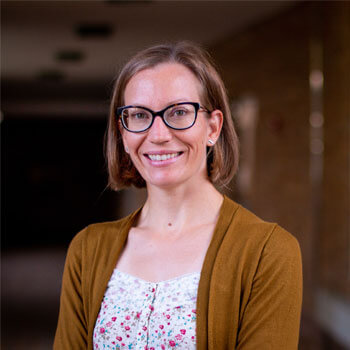
Dean - School of Health Professions, Professor
Office: Heidelberg Hall H201
Phone: (262) 243-4469
Linda Samuel is the Dean of the School of Health Professions. She began her career at CUW as a member of the Occupational Therapy Department teaching Behavioral Health and a variety of foundational courses. She later held the position of the Chair of the Occupational Therapy Department for 8 years.
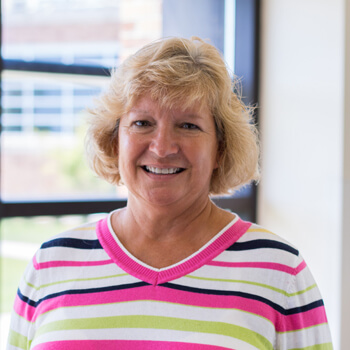
Assistant Professor
Office: Health Services HS101R
Phone: (262) 243-4395
I obtained my degree from UW-Milwaukee. My clinical expertise includes adult rehabilitation in the ICU, acute, and inpatient rehab settings with a specialty in neurological rehabilitation. I am certified in physical agent modalities, LSVT Big.
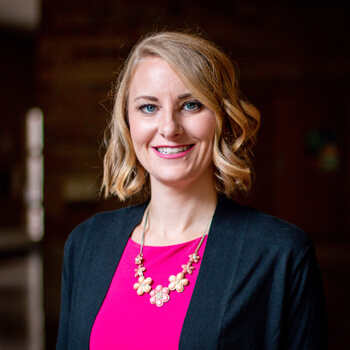
Assistant Professor
Office: Heidelberg Hall 215
Phone: (262) 243-2206
AmyJo is a CUW alumnus (BS ’97; MOT ‘00) with experience as an adult OT and Healthcare Leader. She has worked in SCI, Industrial Rehab, Outpatient, Skilled Nursing and Sub-Acute Care, Clinical Training, Consulting, Acute Care, and Leadership.<br><br>AmyJo is passionate about educating others, facilitating clinical and personal growth and leadership skills. Her passions include the development of clinical reasoning through practical and theory experience, dementia and spirituality, aging in place, fall prevention, well-elderly programming, and the vocational calling to serve others in the community and in the church.<br><br>She is currently pursuing her PhD in Leadership and Gerontology at Concordia University Chicago. She is expected to defend her dissertation in 2025.
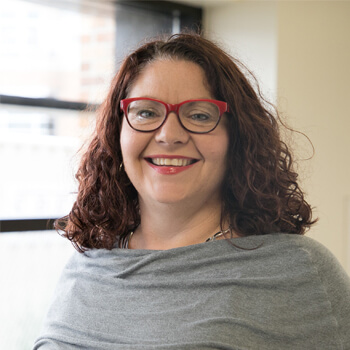
Assistant Professor
Office: Heidelberg Hall 221
Phone: (262) 243-4288
Dr. Vergo has practice experience across the lifespan and multiple settings, with primary emphasis in outpatient pediatrics. She has been involved with content creation and speaking engagements for Pathways.org; the American Occupational Therapy Association; and the American Congress of Rehabilitation Medicine. Her current interests include the occupational impact of pediatric and maternal behavioral health and professional longevity (a.k.a. burnout prevention) for healthcare workers. As a first-generation college student, Dr. Vergo is also interested in factors that influence recruitment and retention of students in graduate level OT programs. Dr. Vergo is a Certified Organizational Trainer for Inspiring Comfort.
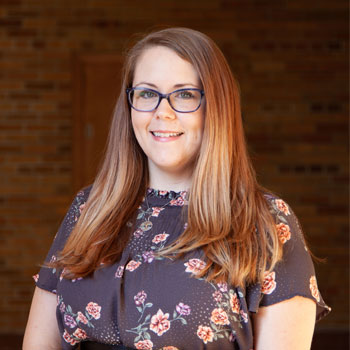
Department Chair - Department of Master of Occupational Therapy (MOT) and Doctor of Occupational Therapy (OTD) Programs, Associate Professor
Office: Health Services HS115
Phone: (262) 243-2044
Completed B.A. in psychology from Wisconsin Lutheran College in 2003, MOT from Concordia University WI in 2007, and PhD in Special Education from Northcentral University in 2019. Clinical practice experience in early childhood/ school-based occupational therapy and adult acute care practice.
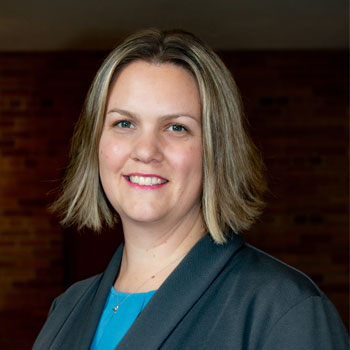
Coordinator - Academic Fieldwork Coordinator, Clinical Assistant Professor
Office: Health Services HS 133
Phone: (262) 243-2043
Stacey Kukor is currently the Academic Fieldwork Coordinator in the OT Program. Her passion is placing students in great clinical learning opportunities. She graduated from Concordia University with a Masters of Occupational Therapy in 2001, and received her OTD from Mount Mary University in 2020. Stacey is currently an active member at St. Paul's Lutheran Church and School in West Allis.
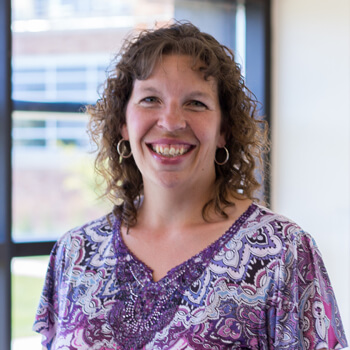
Program data specific to Concordia University Wisconsin on the National Board for Certification in Occupational Therapy (NBCOT) Exam can be found here.
| Graduation Year | Program Graduates | Graduation Rate |
|---|---|---|
| 2022 | 7 | 79% |
| 2023 | 14 | 100% |
| 2024 | 24 | 100% |
| 3 year total | 45 | 96% |
Note: Our accreditation was granted in 2022, which is the same year our first cohort of students graduated.
Graduates of the CUW Occupational Therapy Doctorate program will:
The following table outlines the potential cost of attendance for a student in the OTD Program. These costs are subject to change based on cost of textbooks, change in textbooks, and/or change in fee amounts from the University. Students in the accelerated track may have additional fees while finishing the undergraduate degree. Information about these fees may be obtained from the undergraduate billing.
Please note all accepted students will be required to submit a $500 tuition deposit within four (4) weeks of acceptance to hold their spot in the MOT program. There is no tuition deposit for students who apply to the OTD while in the MOT program.
| Semester 1 | Semester 2 | Semester 3 | Semester 4 | Semester 5 | Semester 6 | TOTAL | |
| TUITION* | $15770 | $15770 | $15770 | $15770 | $15770 | $15770 | $78,850 |
| CUW STUDENT FEE (Accelerated & Post-Bacc tracks) | $184 | $184 | $184 | $184 | $184 | $184 | $920 |
| CUW STUDENT FEE (Bridge track) | $144 | $144 | $144 | $144 | $144 | $144 | $720 |
| VH DISSECTOR FEE | $75 | -- | -- | -- | -- | -- | $75 |
| EMR FEE | -- | $150 | -- | -- | -- | -- | $150 |
| AOTA ANNUAL STUDENT MEMBERSHIP | $75 | $75 | $150 | ||||
| TEXTBOOKS & MATERIALS** | $1000 | $1200 | $400 | $300 | -- | -- | $2,900 |
| TOTAL | $17,064 - $17,104 | $17,264 - $17,304 | $16,389 - $16,429 | $16,214 - $16,254 | $15,914 - $15,954 | $15,914 - $15,954 | $98,759 - $98,999 |
*Tuition is based on students who begin in the 2024-2025 Academic Year. Tuition increases each academic year, typically by 3-5% and is released for publication in June.
**The textbook & material cost is an estimate based upon current requirements and could change while enrolled in the program if a required textbook changes. Students are independently responsible for purchasing their textbooks, which could increase or decrease the total cost. Due to the use of a three term (fall, spring, and summer) academic calendar, textbooks may be purchased during the summer instead of fall or spring, which would change the cost per term of textbooks.
Note: students who bring a car to campus will be required to register their vehicle and pay vehicle registration fees as determined by the university. Further information can be found here.
Travel costs will vary from student to student within our tracks. All students will have a one-week residency during Summer 2, which could include transportation, housing and food costs. Students will also accrue travel costs for the Level II Fieldwork and the Capstone Experience as placements can be located as much as an hour away via car.
Students in the Bridge Track should additionally plan for travel to campus 4 times during Semesters 1, 2, 3 & 4, as well as 2-3 times during the first and third summers. This travel will include, at minimum, one overnight stay and all travel-related costs, including gas, car rentals, airfare, and food. Students may need to plan for travel costs to get to our Community Clinic sites located off-campus.
Students entering the Occupational Therapy program will need to access to a computer that meets the following requirements. We highly recommend purchasing a laptop for portability.
| WINDOWS | APPLE | |
| Operating System | Windows 10 Home, Pro, Ent | Apple OS X 10.12.x or higher |
|---|---|---|
| Processor | Core – minimum – i5 highly recommended – i7 | Core – minimum– i5 highly recommended – i7 |
| Memory | 8 GB or higher Recommended 16 GB | 8 GB or higher Recommended 16 GB |
| Hard Drive | 250/500 GB or higher Recommended - SSD |
250/500 GB or higher Recommended - SSD |
| Graphics | Intel HD Graphics 4600 or Intel Iris Graphics 540 2GB VRAM** Windows: DirectX 11 |
Intel HD Graphics 4600 or Intel Iris Graphics 540 2GB VRAM** macOS: Metal*** |
| Wireless | 802.11 | AirPort |
| Camera with Microphone | Required | Required |
| Battery | Minimum life of 2 plus hours | Minimum life of 2 plus hours |
| Warranty | Highly recommended – 3 year | Highly Recommended – 3 year |
Optional, but recommended:
Software required and supplied by Concordia University:
Please Note:
If you have related questions or have concerns about the affordability of this requirement, please contact Assistant Vice President of Academics for Student Success, Dr. Elizabeth Polzin at Elizabeth.Polzin@cuw.edu.
Students in the OTD program - Accelerated track can expect to complete coursework in a blended format. Students begin coursework in the MOT program in January of their junior year at CUW, according to the university academic calendar. Students in the accelerated track should anticipate having class two days a week, 7:30am - 5:00pm on CUW's Mequon campus. Wednesdays may have required participation in school activities, such as Interprofessional Education and cross-cohort mentorship, and students must maintain a level of flexibility in scheduling. Students should expect to complete coursework independently and collaboratively online during the remainder of the week. Some class requirements may be completed off-campus at designated community locations. Students are responsible for transportation to all off-campus community locations. Select courses throughout the program will be offered solely online in which students are expected to learn independently and collaboratively.
Students are assigned a faculty advisor at the beginning of the MOT program. Starting in the first semester, students will be introduced to our Interprofessional Community Clinic, which serves clients across the lifespan. As students progress through the program, their involvement and autonomy in evaluation and treatment of clients will increase. The OT program has embedded a student mentorship model for students to work with others in their track as both mentor and mentee. CUW OT students can be involved in student and professional organizations, Pi Theta Epsilon - OT honor society, and faculty-mentored research opportunities. CUW’s Interprofessional Education (IPE) events encourage students to work through real-world scenarios with a team of future health professionals.
Students in the MOT program explore the entry-level Occupational Therapy Doctorate (OTD) degree during the second semester. At that time, students are given the choice to continue in the MOT program or apply to the OTD program. Please reference the Admissions tab for full admissions information.
Two significant components of the OTD program include the earning of a digital badge and the development and completion of a Capstone Experience and Project. OTD students choose from 5 areas of interest, of which they can earn a digital badge: administration/policy/program development, advocacy, education, leadership or research. Each badge has unique assignments to develop a specific skill set. Upon graduation, OTD students are issued a digital badge for use on their resume, email signature, and social media.
The Capstone Experience and Project is a required element of the OTD program. Upon entry into the OTD program, students discuss topics of interest and possible projects with the Doctoral Capstone Coordinator. Students guide this process and pick a topic of interest to them, rather than being added onto faculty projects. Once a topic and badge area are chosen, OTD students are matched with a faculty advisor who will continue to mentor and advise them through the completion of their Capstone Experience. These faculty advisors are doctoral-trained and have a clinical or research background consistent with the OTD student's area of interest or topic.
Starting with students in the January 2026 cohort, upon completion of 18 months of didactic coursework, students will complete two 12-week Level II Fieldwork placements, then a 14-week Capstone Experience during their final semester.
Students in the OTD program - Bridge track can expect to complete coursework in a blended format. Students begin coursework in the MOT program in the fall term. Students should expect to complete coursework independently and collaboratively online every week. Select courses throughout the program will be offered solely online in which students are expected to learn collaboratively. Online course work is designed to be completed asynchronously; however many courses offer optional synchronous virtual meetings. Additionally, students should anticipate traveling to CUW's Mequon campus once a month for in-person learning experiences. Classes run Friday 12pm-9pm and Saturday 8am-5pm with a one-hour break each day. Some class requirements are completed off-campus at designated community locations, and students are responsible for transportation. During the second summer of the OT program, students in the bridge track complete a one week, full-time residency on campus. During this week, students participate in a pediatrics Level I Fieldwork experience, as well as a behavioral health Level I Fieldwork experience.
Students are assigned a faculty advisor at the beginning of the MOT program. Starting in the first semester, students will be introduced to our Interprofessional Community Clinic, which serves clients across the lifespan. As students progress through the program, their involvement and autonomy in evaluation and treatment of clients will increase. The OT program has embedded a student mentorship model for students to work with others in their track as both mentor and mentee. CUW OT students can be involved in student and professional organizations, Pi Theta Epsilon - OT honor society, and faculty-mentored research opportunities.
Students in the MOT program explore the entry-level Occupational Therapy Doctorate (OTD) degree during the second semester. At that time, students are given the choice to continue in the MOT program or apply to the OTD program. Please reference the Admissions tab for full admissions information.
Two significant components of the OTD program include the earning of a digital badge and the development and completion of a Capstone Experience and Project. OTD students choose from 5 areas of interest, of which they can earn a digital badge: administration/policy/program development, advocacy, education, leadership or research. Each badge has unique assignments to develop a specific skill set. Upon graduation, OTD students are issued a digital badge for use on their resume, email signature, and social media.
The Capstone Experience and Project is a required element of the OTD program. Upon entry into the OTD program, students discuss topics of interest and possible projects with the Doctoral Capstone Coordinator. Students guide this process and pick a topic of interest to them, rather than being added onto faculty projects. Once a topic and badge area are chosen, OTD students are matched with a faculty advisor who will continue to mentor and advise them through the completion of their Capstone Experience. These faculty advisors are doctoral-trained and have a clinical or research background consistent with the OTD student's area of interest or topic.
Upon completion of 20 months of didactic coursework, students will complete two 12-week Level II Fieldwork placements, then a 14-week Capstone Experience.
Starting with students in the Fall 2025 cohort, upon completion of 18 months of didactic coursework, students will complete two 12-week Level II Fieldwork placements, then a 14-week Capstone Experice during their final semester.
Students in the OTD program - Post-Baccalaureate track can expect to complete coursework in a blended format. Students will begin as a MOT student and should anticipate having class two days a week, 7:30am - 5:00pm on CUW's Mequon campus. Wednesdays may have required participation in school activities, such as Interprofessional Education and cross-cohort mentorship, and students must maintain a level of flexibility in scheduling. Some class requirements may be completed off-campus at designated community locations. Students are responsible for transportation to all off-campus community locations. Students should expect to complete coursework independently and collaboratively online during the remainder of the week. Select courses throughout the program will be offered solely online in which students are expected to learn independently and collaboratively.
Students are assigned a faculty advisor at the beginning of the MOT program. Starting in the first semester, students will be introduced to our Interprofessional Community Clinic, which serves clients across the lifespan. As students progress through the program, their involvement and autonomy in evaluation and treatment of clients will increase. The OT program has embedded a student mentorship model for students to work with others in their track as both mentor and mentee. CUW OT students can be involved in student and professional organizations, Pi Theta Epsilon - OT honor society, and faculty-mentored research opportunities. CUW’s Interprofessional Education (IPE) events encourage students to work through real-world scenarios with a team of future health professionals.
Students in the MOT program explore the entry-level Occupational Therapy Doctorate (OTD) degree during the second semester. At that time, students are given the choice to continue in the MOT program or apply to the OTD program. Please reference the Admissions tab for full admissions information.
Two significant components of the OTD program include the earning of a digital badge and the development and completion of a Capstone Experience and Project. OTD students choose from 5 areas of interest, of which they can earn a digital badge: administration/policy/program development, advocacy, education, leadership or research. Each badge has unique assignments to develop a specific skill set. Upon graduation, OTD students are issued a digital badge for use on their resume, email signature, and social media.
The Capstone Experience and Project is a required element of the OTD program. Upon entry into the OTD program, students discuss topics of interest and possible projects with the Doctoral Capstone Coordinator. Students guide this process and pick a topic of interest to them, rather than being added onto faculty projects. Once a topic and badge area are chosen, OTD students are matched with a faculty advisor who will continue to mentor and advise them through the completion of their Capstone Experience. These faculty advisors are doctoral-trained and have a clinical or research background consistent with the OTD student's area of interest or topic.
Starting with students in the January 2026 cohort, upon completion of 18 months of didactic coursework, students will complete two 12-week Level II Fieldwork placements, then a 14-week Capstone Experience during their final semester.
Accelerated OT 2021
Bridge OT 2021
Post Baccalaureate OT 2021
Accelerated OT 2020
Bridge OT 2020
Post Baccalaureate OT 2020